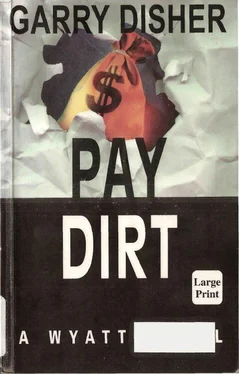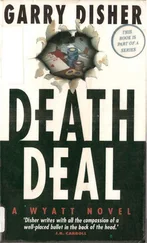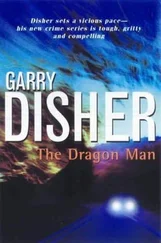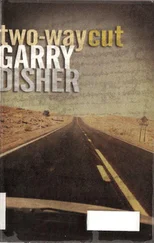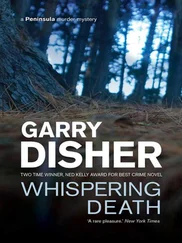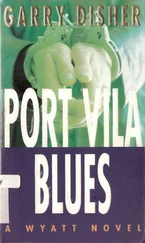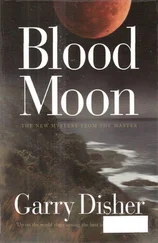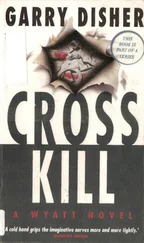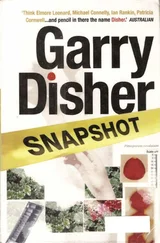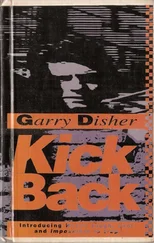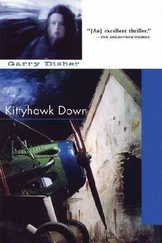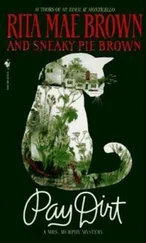Garry Disher - Pay Dirt
Здесь есть возможность читать онлайн «Garry Disher - Pay Dirt» весь текст электронной книги совершенно бесплатно (целиком полную версию без сокращений). В некоторых случаях можно слушать аудио, скачать через торрент в формате fb2 и присутствует краткое содержание. Жанр: Криминальный детектив, на английском языке. Описание произведения, (предисловие) а так же отзывы посетителей доступны на портале библиотеки ЛибКат.
- Название:Pay Dirt
- Автор:
- Жанр:
- Год:неизвестен
- ISBN:нет данных
- Рейтинг книги:3 / 5. Голосов: 1
-
Избранное:Добавить в избранное
- Отзывы:
-
Ваша оценка:
- 60
- 1
- 2
- 3
- 4
- 5
Pay Dirt: краткое содержание, описание и аннотация
Предлагаем к чтению аннотацию, описание, краткое содержание или предисловие (зависит от того, что написал сам автор книги «Pay Dirt»). Если вы не нашли необходимую информацию о книге — напишите в комментариях, мы постараемся отыскать её.
Pay Dirt — читать онлайн бесплатно полную книгу (весь текст) целиком
Ниже представлен текст книги, разбитый по страницам. Система сохранения места последней прочитанной страницы, позволяет с удобством читать онлайн бесплатно книгу «Pay Dirt», без необходимости каждый раз заново искать на чём Вы остановились. Поставьте закладку, и сможете в любой момент перейти на страницу, на которой закончили чтение.
Интервал:
Закладка:
The reply was flat and certain. ‘I can still get him there.’
‘What do you want with him? We didn’t get any money. Is it personal?’
‘No.’
‘What, then?’
Letterman shrugged. ‘It’s a job. He trod on some toes.’
They lapsed into silence again. Eventually they reached the river and turned south. The sun was low in the sky. Leah turned on the headlights.
‘What are they paying you?’
‘Fifty thousand.’
‘I can pay you that. I’ll pay you more if you like. Just drop the matter and leave us alone.’
‘I can’t do that,’ Letterman said.
She glanced at him. Letterman was staring ahead. The pistol hadn’t moved. She couldn’t see it under the map but she sensed its probing snout. She looked at the road again.
‘Watch your driving,’ Letterman said.
She wanted him to say what he intended to do if Wyatt didn’t show up. She knew the answer-he’d kill her whether Wyatt showed up or not-but she wanted to hear him say it.
‘What if he slips interstate? What if he’s injured somewhere? What if the cops have him but they’re not saying?’
‘You talk too much.’
He was curiously asexual. It was more than the white skin-he lacked any sort of sensual dimension. Trying to distract him in that way would be a waste of time.
It was late when they reached her house. Most of the neighbouring houses were in darkness. Leah felt a surge of hope. Wyatt could be in there, waiting for them. She surreptitiously slid her hand to the horn button.
Letterman hit her, slamming the pistol barrel across her wrist. The pain made her stomach churn. Her fingers seemed to clench lifelessly as if she didn’t own them.
Letterman opened his door and stepped out, pulling her across the seat towards him. When they were outside the car he pushed her onto the ground next to the front bumper and cuffed her wrist to it. ‘Not a sound,’ he said.
She watched him enter her yard and walk around the side of the house. She shivered, fear and the chilly night air clamping themselves to her skin and bones. Far away on the freeway, a truck snarled through the gears. A garden tap dripped nearby.
When Letterman came back it was through the front door. He hadn’t asked her for her keys, so he must have got in by forcing a window or the back door lock. She hadn’t heard anything. If Wyatt had been inside he wouldn’t have heard anything either. She asked, her voice low: ‘Was he in there?’
Letterman knelt to uncuff her. ‘No.’
He took her into the house and cuffed her wrist to her ankle while he built a large fire in the grate and lit it. Then he took her into the kitchen and cuffed her to the refrigerator door. He didn’t speak, didn’t explain himself. He found the frozen fish fillets in the freezer and the vegetables in the bottom compartment and cooked them separately in the microwave. He sneered at her rack of Queen Adelaide riesling but opened one and poured two glasses. Then he took her into the lounge again and they ate in front of the fire, the plates balanced on their knees. At eleven o’clock he took her upstairs, cuffed her to her bed, unplugged her bedside telephone and turned out her light.
She didn’t see him again until the next morning. He uncuffed her and waited while she showered and changed her clothes. He looked fresh and rested. He’d slept behind the couch in the corner of the ground floor lounge room. She saw blankets and a pillow there when they went through to the kitchen.
‘He’s not coming,’ she said.
‘Shut up.’
Letterman didn’t speak to her all day, just listened to the hourly news broadcasts on the radio and cleaned his gun. At midday he went out and came back with copies of the Advertiser and the News. Both carried front page stories of the killings and the van that had vanished. He passed her the Advertiser when he’d finished with it. There were photographs of the farm and the Holden utility with its doors open. A detailed map showed the area of the police net. But according to the radio a stolen school bus had been found abandoned in Aberfeldie, and police were now concentrating their attention further afield.
‘He’s coming,’ Letterman said.
‘He won’t come here.’
‘He’s coming.’
The air was cold in the house. After lunch Letterman lit another fire and they sat in front of it through the afternoon and into the evening. If it hadn’t been for the handcuffs and Letterman getting up to peer out of the window every fifteen minutes, they might have been waiting in a counterfeit of married-couple ease or indifference. Leah almost forgot who Letterman was and why he was there. The plantation trees set up a moaning as the wind rose. Smoke from the chimney blew back into the room. They both coughed occasionally and around them the old house seemed to stretch and creak as if it were breathing.
They went to the kitchen, cooked dinner, took it back to the lounge room again. A storm seemed to be blowing up outside. Smoke made their eyes water. Racking coughs shook Letterman every few minutes. It was the only indication of vulnerability that Leah had seen him display. Yet she wasn’t fooled by it. She felt a heightened sense of the coldness and patience inside him. She saw his face form and re-form in the firelight.
But something was wrong with the fire. Letterman rubbed his eyes. He coughed. Her own eyes were streaming. The air was heavy with smoke. Letterman looked past her at the fire, frowned, coughed again. He got up and prodded the logs with a poker. Smoke was rolling out now, choking coils of it, dimming the light and starving them of oxygen. Letterman got up and uncuffed her. ‘He’s here.’ Then the lights went out.
THIRTY-FIVE
There were lights on inside but the curtains were closed and the windows and doors were locked so Wyatt had no clear sense of what he might find until he heard the cough. It was a man’s cough.
He’d already examined the car. He couldn’t judge colours properly under the streetlight but the dust coating the Valiant seemed familiar enough. He’d been sneezing it for the past month. He knelt, keeping the car between himself and the house. There were clumps of grass caught in the dust flaps and bumper bars.
He wondered who the man was. He didn’t think it would be Tobin. Leah had better taste than that. He guessed it would be somebody from the other team. Not that he cared either way now. He’d found them. He’d kill them, get his money, start somewhere new. It wasn’t something Wyatt intended to waste time thinking about. He’d been crossed, that was all he needed to know.
He was pleased about the stormy wind. It masked the creak of the gate, his footsteps, his examination of the doors and windows.
He was at the side of the house when a downdraft of wind caught him. It was laden with smoke, burning the back of his throat. He looked up at the chimney. He thought about the cough.
The roofline was flat and low above the porch at the rear of the house. By climbing the paling fence at the side he was able to leap onto it. He landed lightly but the old struts underneath the roofing iron moaned under his weight. He made for the upper roof area, into which the upstairs rooms had been built, climbed onto it, crawled to the peak and clutched the chimney.
Wyatt hadn’t been sure how he would block the chimney-throw his suit coat over it perhaps-but when he stood up next to it he discovered a lightweight metal plate hanging from a short chain. It was a cap to keep the birds out in the summer months. He placed it over the hole and dropped it into place. Someone in the next house opened a back door, called ‘Puss, puss, puss,’ and went inside again.
Wyatt climbed down the way he’d come. The fuse box was on the front verandah. He opened it, switched off the power and tossed the fuses away.
Читать дальшеИнтервал:
Закладка:
Похожие книги на «Pay Dirt»
Представляем Вашему вниманию похожие книги на «Pay Dirt» списком для выбора. Мы отобрали схожую по названию и смыслу литературу в надежде предоставить читателям больше вариантов отыскать новые, интересные, ещё непрочитанные произведения.
Обсуждение, отзывы о книге «Pay Dirt» и просто собственные мнения читателей. Оставьте ваши комментарии, напишите, что Вы думаете о произведении, его смысле или главных героях. Укажите что конкретно понравилось, а что нет, и почему Вы так считаете.
